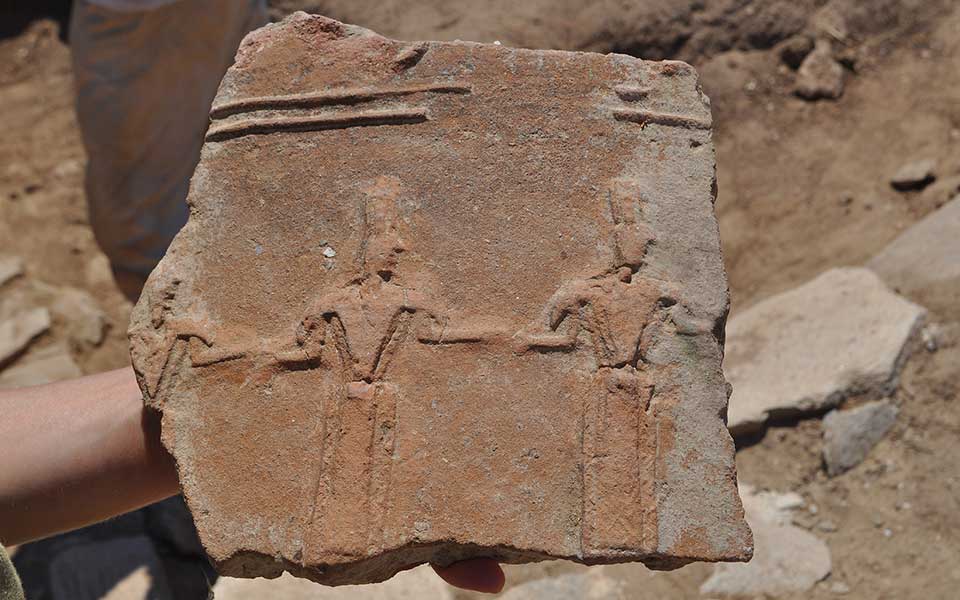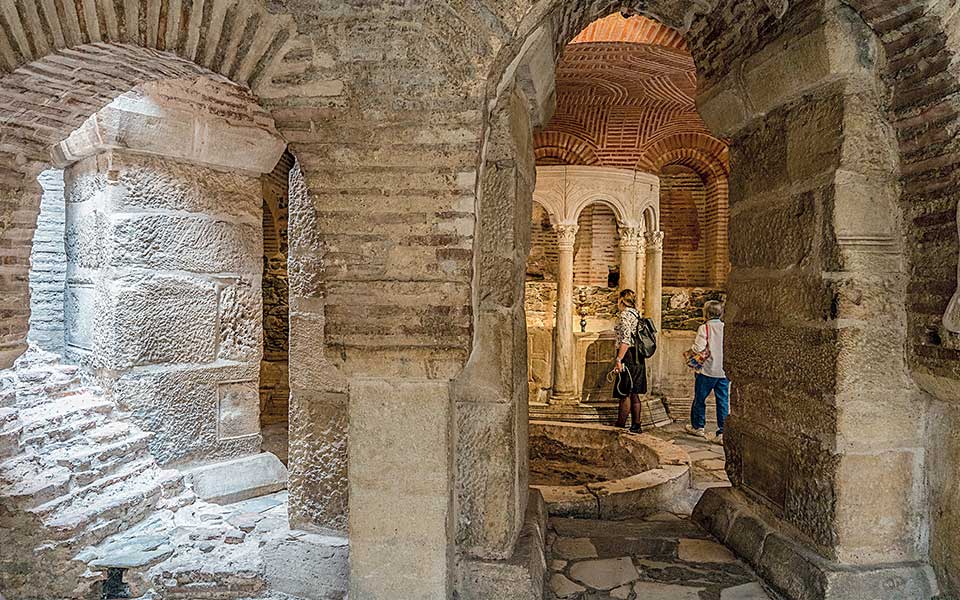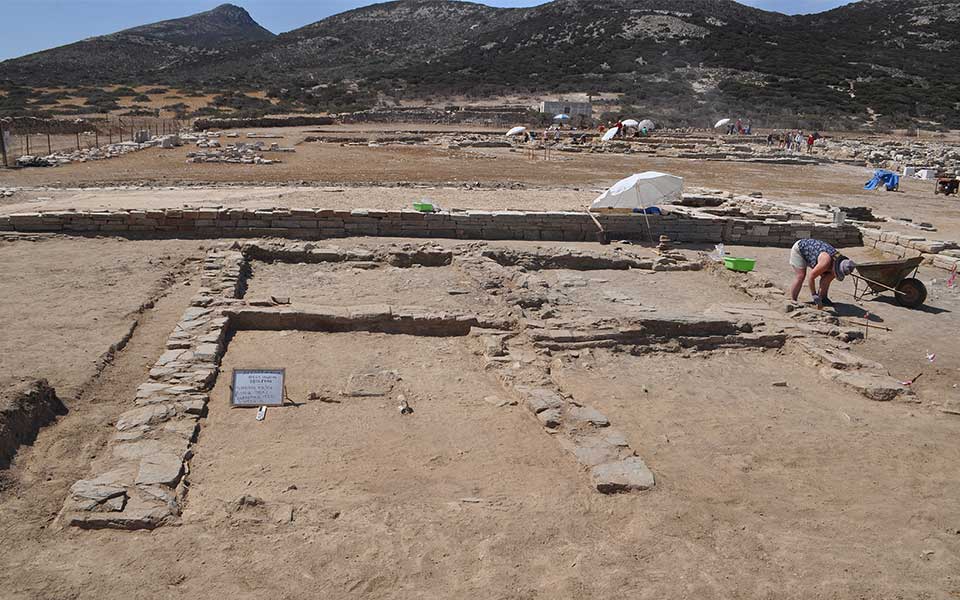When Amphipolis Was in Color
Reconstructing the lost polychromy and meaning…

A find from the archaeological digs on Despotiko
© Ephorate of Antiquities of Cyclades
This is going to be an odd summer for archaeologists trying to carry out the excavations planned for this period. The health crisis has mandated a series of measures to ensure safety at digs, which are usually crammed with archaeologists, scientists, assistants and students.
Restrictions and travel bans have prompted many foreign archaeological schools to cancel their fieldwork for this summer, while local archaeologists are having to work with much smaller teams to avoid crowding.
The new challenges were described to Kathimerini by Nikolaos Stampolidis, the renowned professor of archaeology and director of excavations for the University of Crete at Eleutherna, the ancient city that continues to amaze us with the sheer wealth of finds and information it yields.
“According to the new regulations I drafted, this year’s excavation will take place without the participation of foreign students, but only students from the University of Crete and possibly from other parts of Greece. The number of students will be slashed by half and there will also be restrictions on how they are distributed around the site, allowing only one or two students per room, depending on its size.
“Meals will be served in the open air, as dictated by EODY [the National Health Organization] and we will provide all the necessary antiseptics and gloves both at the excavation site and in the area for collecting and sorting artifacts,” he says.

The Church of Aghios Dimitrios
© Perikles Merakos
Parts of the site that attract large numbers of tourists – like the Orthi Petra necropolis, for example – will not be excavated this year so that the members of the excavation team do not come in contact with travelers from abroad.
“I’m only going to dig in areas where there is no contact with outsiders. We have to act responsibly,” says Stampolidis, who will be focusing his efforts this summer on Eleutherna’s basilicas and finds related to the transition from paganism to Christianity.
The archaeologist will also be focusing on architectural fragments and Archaic inscriptions found at the site.
“The third basilica we are excavating is also impressive and has similar characteristics to the first phase of the churches of Saint Demetrios and the Acheiropoietos in Thessaloniki, illustrating how Eleutherna participated in the drive for modernization and the dominance of Christianity in the 5th and 6th centuries,” says Stampolidis.

The excavation site on Despotiko
© Ephorate of Antiquities of Cyclades - Ministry of Culture
Xeni Arapogianni, director emerita of the 38th Ephorate of Antiquities, is planning to commence excavations at Ancient Thouria, in the western Peloponnesian region of Messinia, on July 6, under the aegis of the Archaeological Society at Athens.
“The dig will employ 15 people, when in previous years there were 30 of us. For obvious reasons, we will not be taking on students from foreign universities this year and we will be adopting all the necessary safety measures. We are basically implementing a new protocol adapted to the pandemic,” she says, explaining that efforts will be focused on the 3rd century BC theater and a section of the fortification wall that was uncovered last year.
Yannos Kourayos has already commenced restoration and excavation work at the Sanctuary of Apollo on Despotiko island, off the Cycladic island of Antiparos.
“The architraves, metopes, triglyphs and cornice moldings will all be installed and, thus, the entablature forming the upper part of the temple’s facade will be completed. Then, on June 20, we begin excavations on the neighboring islet, Tsimintiri, which was connected to Despotiko in ancient times. Last year, we discovered five large public buildings there and a circular enclosure that was probably used for festivals in honor of Apollo,” he says.
“We will be employing far fewer people this year in order to avoid overcrowding at the excavation sites and storage areas. We cannot work in the same way as before. Even the small boat that takes us to Despotiko carries fewer passengers at a time now,” he adds.
This article was first published in Greek at kathimerini.gr
Reconstructing the lost polychromy and meaning…
A nationwide survey highlights improved services,…
Four mysterious Bronze Age artifacts from…
The removal marks a rare moment…